What is the Function of Omron PLC?
- kwoco-plc.com
- August 19, 2024
- 12:48 am
Are you tired of dealing with unreliable control systems that cause delays and inefficiencies in your operations? If you’ve been searching for a reliable solution, Omron PLCs might be exactly what you need. These powerful devices can transform how your business manages automation, ensuring smooth and efficient processes.
Omron PLCs (Programmable Logic Controllers) are essential for automating industrial processes. They control machinery, monitor inputs and outputs, and help ensure that your systems run smoothly and efficiently. Whether you’re managing a factory or overseeing an engineering project, Omron PLCs offer the reliability and precision needed to keep operations on track.
Table of Contents
Omron PLCs stand out in the market due to their versatility, durability, and ease of integration into various industrial systems. But what exactly makes them so special? Let’s dive into the core functions of Omron PLCs and how they can benefit your business.
How Do Omron PLCs Control Industrial Processes?
At the heart of any automated system lies the PLC, a device that serves as the brain of the operation. Omron PLCs are designed to monitor various input devices, such as sensors, switches, and data from other systems. They process this information and use it to control output devices, including motors, lights, and alarms.
This control process happens in real-time, allowing for immediate responses to changing conditions. For example, if a sensor detects an abnormal temperature, the PLC can trigger an alarm or adjust the system to prevent damage. The speed and accuracy of these responses are crucial in maintaining the efficiency and safety of your operations.
To better understand how Omron PLCs function in various scenarios, let’s look at their role in a typical manufacturing setup. Imagine a production line where raw materials are processed into finished products. Omron PLCs monitor the entire process, ensuring that each step occurs at the right time and in the correct sequence. If a machine malfunctions or a process deviates from the set parameters, the PLC takes immediate corrective action.
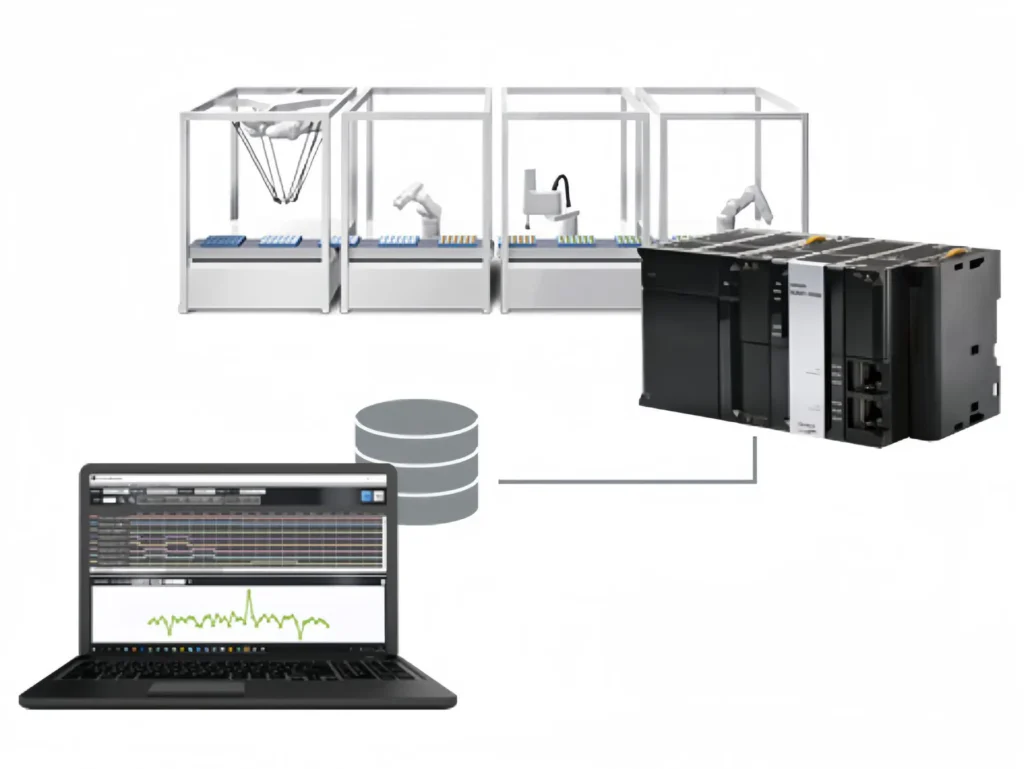
Why Are Omron PLCs Essential for Industrial Automation?
Industrial automation is all about efficiency, consistency, and precision. Omron PLCs excel in these areas, making them a staple in industries ranging from automotive manufacturing to food processing. They eliminate the need for manual interventions in routine tasks, reducing the risk of human error and improving overall productivity.
One of the key functions of Omron PLCs is their ability to handle complex logic operations. This means they can make decisions based on multiple inputs and conditions, similar to how a human operator might. For instance, in an automated warehouse, an Omron PLC can control conveyor belts, sorting systems, and robotic arms, ensuring that products are moved and stored correctly without the need for constant supervision.
Another significant advantage of Omron PLCs is their adaptability. They can be programmed and reprogrammed as needed, allowing your system to evolve with changing business requirements. This flexibility is particularly valuable in industries where processes must be frequently adjusted to accommodate new products or regulations.
How Do Omron PLCs Ensure System Reliability?
Reliability is non-negotiable in industrial environments, where downtime can lead to significant financial losses. Omron PLCs are engineered to withstand harsh conditions, including extreme temperatures, vibrations, and electrical noise. This robustness ensures that they continue to operate effectively even in challenging environments.
Moreover, Omron PLCs come with built-in diagnostic and troubleshooting features. These capabilities allow your maintenance team to quickly identify and address issues, minimizing downtime and keeping your operations running smoothly. With Omron PLCs, you can trust that your automation systems will deliver consistent performance day in and day out.
Another critical aspect of Omron PLCs is their compatibility with other systems. They can seamlessly integrate with existing equipment and software, making it easier to upgrade or expand your automation setup. This interoperability reduces the complexity of managing multiple systems and ensures that everything works together harmoniously.
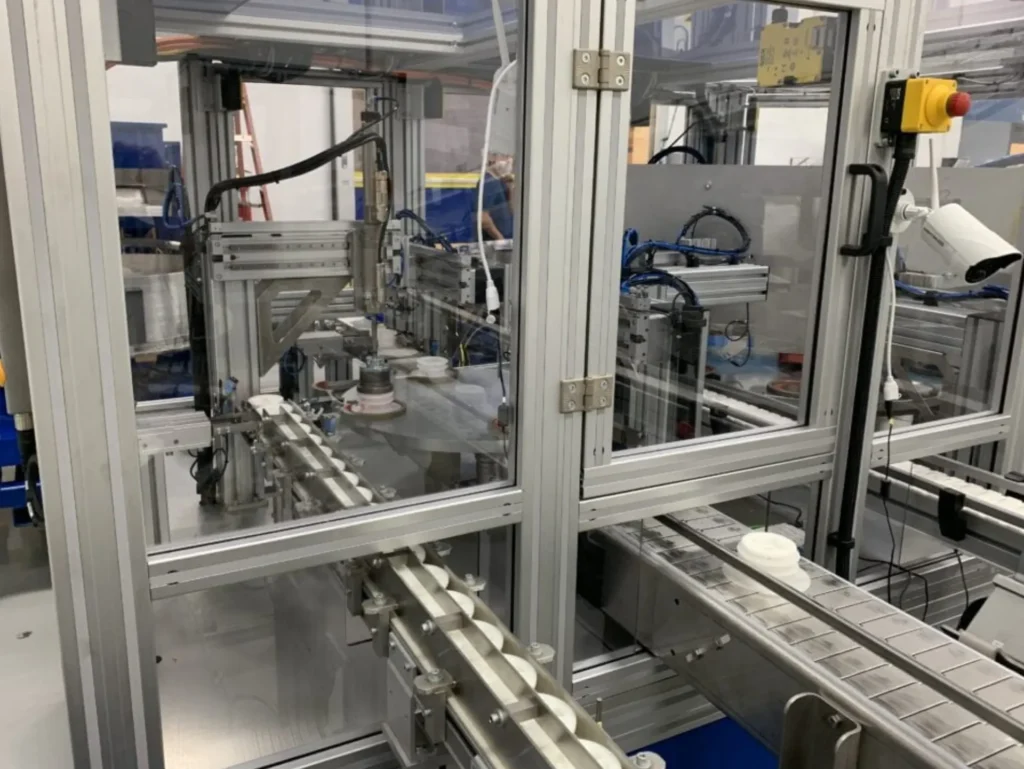
What Are the Benefits of Using Omron PLCs?
The benefits of using Omron PLCs extend beyond just improved automation. They also contribute to better data management and decision-making. By collecting and analyzing data from various points in your system, Omron PLCs provide valuable insights that can be used to optimize processes and reduce waste.
For example, in a food processing plant, Omron PLCs can track production rates, monitor equipment performance, and ensure that products meet quality standards. This data-driven approach helps you make informed decisions that can boost efficiency and reduce costs.
In addition to their technical capabilities, Omron PLCs are known for their user-friendly interfaces. Even operators with limited technical expertise can program and operate these devices, thanks to their intuitive design. This ease of use reduces training time and allows your team to focus on what they do best—delivering high-quality products and services.
Exploring the Different Series of Omron PLCs
- CP1E Series: Compact and cost-effective, ideal for basic automation tasks with essential features like high-speed counters, pulse outputs, and analog I/O capabilities.
- CP1L Series: Flexible and expandable, offering more I/O points, faster processing, and advanced control options like PID, PWM, and Ethernet connectivity for versatile applications.
- CJ2M Series: High-speed processing with extensive networking capabilities, supporting Ethernet/IP and EtherCAT, ideal for complex control tasks in modular and scalable systems.
- NX1P2 Series: Advanced motion control with up to eight axes, featuring synchronized control, electronic camming, and high-speed I/O for precise, multi-axis industrial applications.
- CS1D Series: Redundant and reliable, designed for critical applications with dual CPU redundancy and hot-swappable components, ensuring continuous operation in demanding environments.
At Kwoco, we understand that each industrial application has unique requirements, which is why we stock a comprehensive range of Omron PLCs, including the CP1E, CP1L, CJ2M, NX1P2, and CS1D series. Our products are brand new and original, ensuring the highest quality and reliability. With a large inventory available, we offer immediate shipment and global delivery to meet your automation needs quickly and efficiently.
Kwoco offers brand-new, original Omron PLCs at competitive prices.
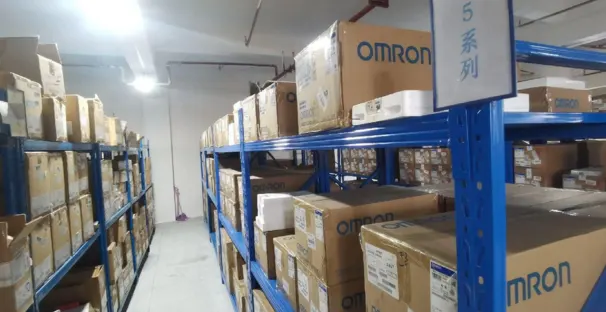
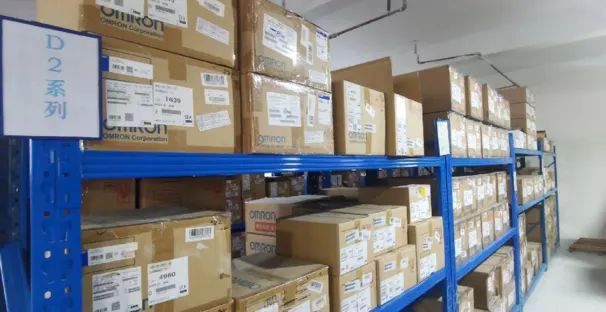

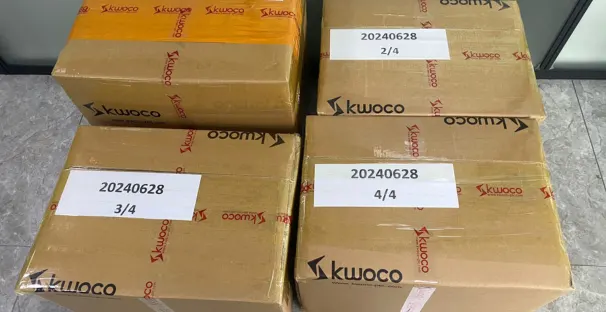
Conclusion
In conclusion, Omron PLCs are indispensable tools for anyone involved in industrial automation. They provide the control, reliability, and flexibility needed to manage complex processes and keep your operations running smoothly. By integrating Omron PLCs into your system, you can enhance efficiency, reduce downtime, and achieve better outcomes for your business.
If you’re looking to upgrade your automation setup or simply want to learn more about how Omron PLCs can benefit your operations, feel free to reach out to us at Kwoco ([email protected]) . We’re here to help you find the perfect solution for your needs.
Contact Us
Just fill out your name, email address, and a brief description of your inquiry in this form. We will contact you within 24 hours.
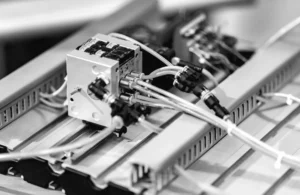
Why Your PLC Needs a Separate Power Supply
Why Your PLC Needs a Separate Power Supply Have you ever wondered why PLC systems often require a separate power

Why Your Business Needs a Variable Frequency Drive
Why Your Business Needs a Variable Frequency Drive When managing industrial operations, optimizing energy efficiency while maintaining performance is crucial.

Why Signal Isolation is Crucial for Omron PLCs?
Why Signal Isolation is Crucial for Omron PLCs? In the world of industrial automation, signal interference is a silent killer.
